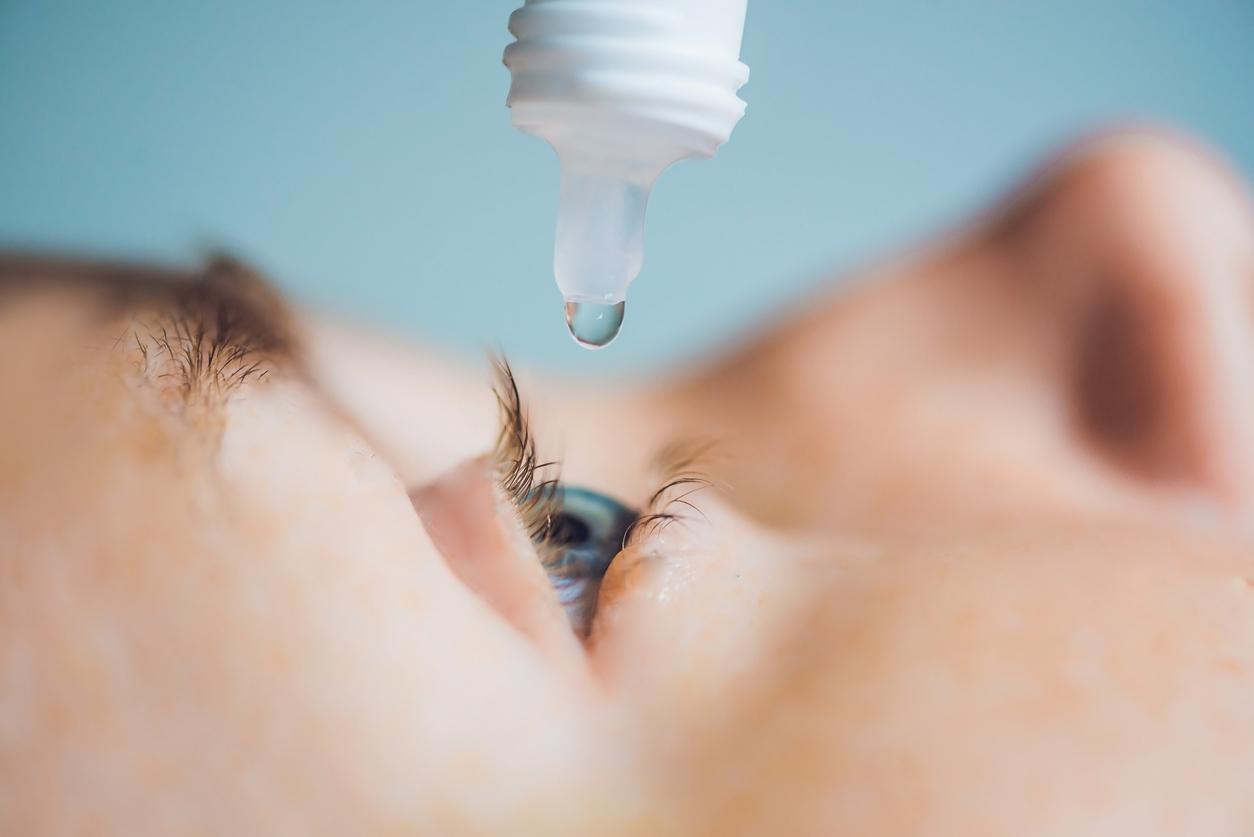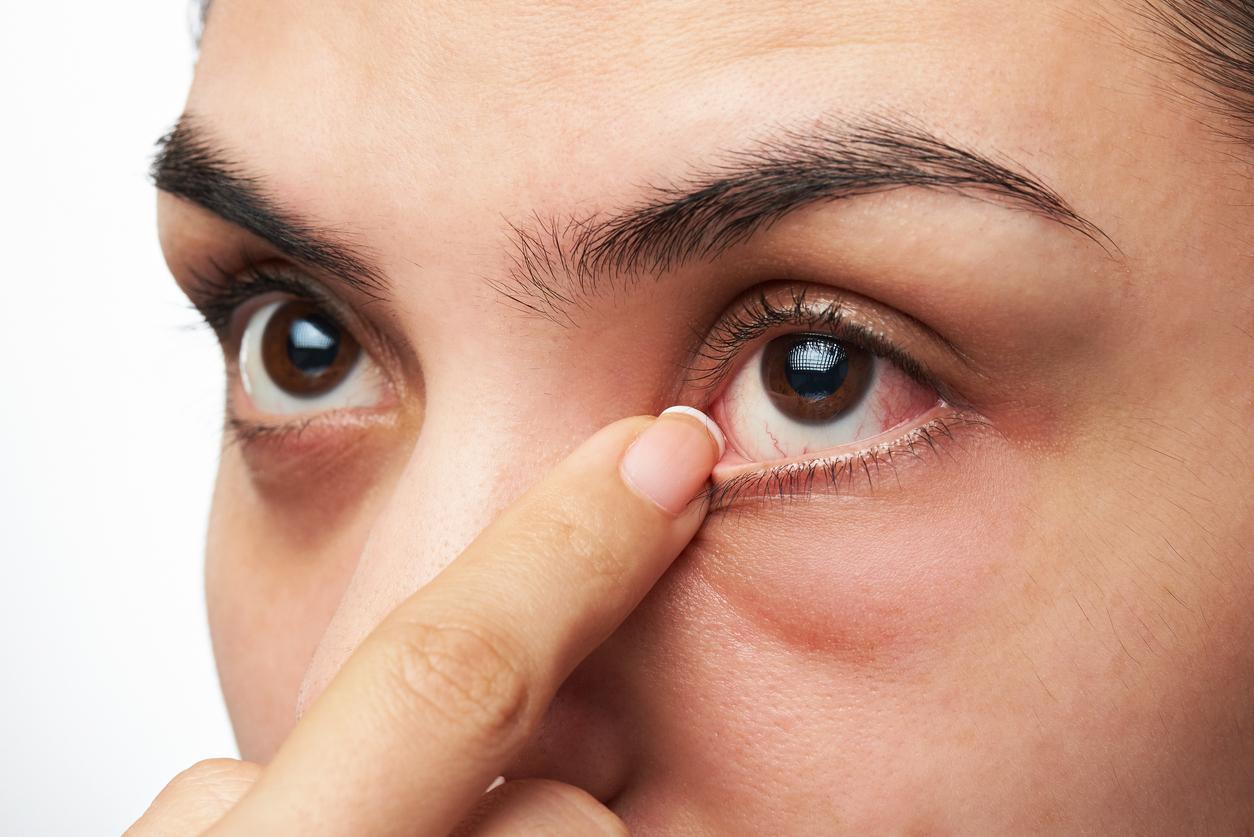According to an American study, an oral probiotic, composed of good bacteria present in the body, can treat dry eyes.

- A suitable oral probiotic could help treat and manage dry eye symptoms.
- This disorder is increasing due to pollution and the development of air conditioning.
- According to work on mice, the good bacteria in our intestines protect the cornea and help produce more tears.
We knew that bacteria “friends” that live in our body were beneficial for the health of the intestine, the brain and even lungs. Thanks to recent work presented at ASM Microbe 2023, the annual meeting of the American Society for Microbiology, we learn that they also have effects on our eyes.
Indeed, according to a study conducted by a research group at Baylor College of Medicine in Houston, Texas, oral administration of a commercially available probiotic bacterial strain improved dry eye disease in an animal model.
Dry eye: a growing problem
We speak of dry eye when the quantity and / or quality of an individual’s tears is insufficient, recalls theHealth Insurance : “Having dry eyes causes visual discomfort and can, in some cases, lead to corneal irritation as well as eye infections. In recent years, cases of dry eyes have increased markedly, as our living conditions deteriorate. (pollution, air conditioning, etc.)”
The most common treatments are the application of eye drops, gels or ointments.
This new unconventional treatment therefore uses bacteria present in the intestinal tractthe greater part of the digestive tract.
Probiotic: a new treatment to fight against dry eye?
Previous work from the same research group suggested that gut bacteria in healthy people help protect the surface of the eye in dry conditions.
Thus, scientists deduced that a possible treatment for dry eye would be to administer probiotic bacteria with similar protective effects.
The research group investigated this possibility using an orally administered probiotic bacterial strain, Limosilactobacillus reuteri DSM17938in a mouse model with dry eye disease.
DSM17938 is a commercially available human-derived bacterial strain that has previously demonstrated protective effects on the gut and immune system in humans and mice, but had not been tested in the context of eye health.
Probiotics protect the cornea
The mice were first treated with antibiotics, which kill off much of the good bacteria living in the gut. They were then exposed to very dry conditions and given daily doses of probiotic bacteria.
“After 5 days, the eyes were examined for disease. Mice fed the probiotic bacteria had healthier and more intact corneal surfaces. Also, these mice had more goblet cells in their eye tissue, specialized cells that produce mucin, an essential component of tears.”, explain the researchers.
They hope to be able to develop this probiotic to help treat and manage the symptoms of this disorder which affects France almost a third of the adult population.


















